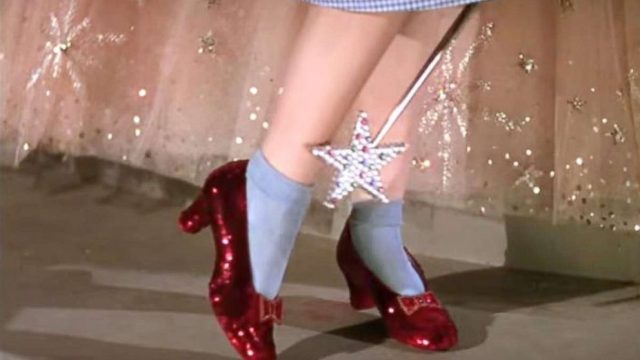We caught the last two episode of Good Omens last night, despite the kids’ best efforts to distract us. (“Look, kid, Mama is hot and tired, and I know you’re too young to understand the concept of Development Hell, but Mama has been waiting a long time for this and you’re making yourself no friends by not being quiet.” Ahem.) The last half-hour or so is a whiplash of back-and-forth from following the book and not, but I was, yes, satisfied with it overall. (I didn’t like their Death; I think the problem is that Neil doesn’t do well writing Terry’s Death. Also, Death is not a tenor.) There were only two lines from the book that I missed not having in the movie, and one of them I only wanted because it reminds me of a famous typo version of it in one edition.
A faithful adaptation, however, is not always a good adaptation. Possibly no work of literature has been played with on film so many times while almost never having a faithful adaptation than Alice in Wonderland, and that’s in part because a truly faithful adaptation is not so much a movie as, well, a dream—the whole point of the book is that it’s just a series of incidents strung together with no true connection that makes sense. Conversely, one of my largest problems with the most famous adaptation of The Wizard of Oz is that the movie makes it all a dream and throws quite a lot of the story overboard.
I know of at least one adaptation that I consider to work as well as it does because it threw out the worst bits of the book it’s based on—the book is dreadful, but the movie of The Lost World is merely mediocre. It’s clear Michael Crichton was trying to figure out everything that worked in Jurassic Park and just copy it, and he was wrong and also did what had worked badly the second time. Williams Goldman’s book of The Princess Bride is already supposed to be “the good parts edition” of a book that canonically must be about twice the length, and even he knew that bits had to be trimmed to make the movie a workable length. Though even there, there’s one line from the book I want back.
The secret seems to be knowing what you want to do. What is the point of your adaptation? What story are you telling? Why are you telling it? Why are you making the changes? And frankly, once you’ve made enough of them, why are you claiming to have adapted the work in the first place? (See, for example—or probably don’t—The Lawnmower Man, which has basically nothing to do with the Stephen King short story except the name.) If you’re trying to cash in on name recognition, that is not a good enough reason.
From what I can tell, the main reason Neil Gaiman wanted to adapt Good Omens was that an adaptation of it was something Terry Pratchett had wanted very much, and this was a thing he could do for his friend. And that is beautiful. That is a reason to choose to adapt something, and to do the best job at it you can. A little research could find lots of times where the author of the original work wasn’t the best person to adapt it to the screen—even leaving out the collaborative work issue that we have here. But I do think there are also lots of examples of very good adaptations, by original authors and by others, and I definitely think this is one of them.
Help pay for my Amazon Prime so I can watch more stuff like Good Omens; support my Patreon or Ko-fi!


